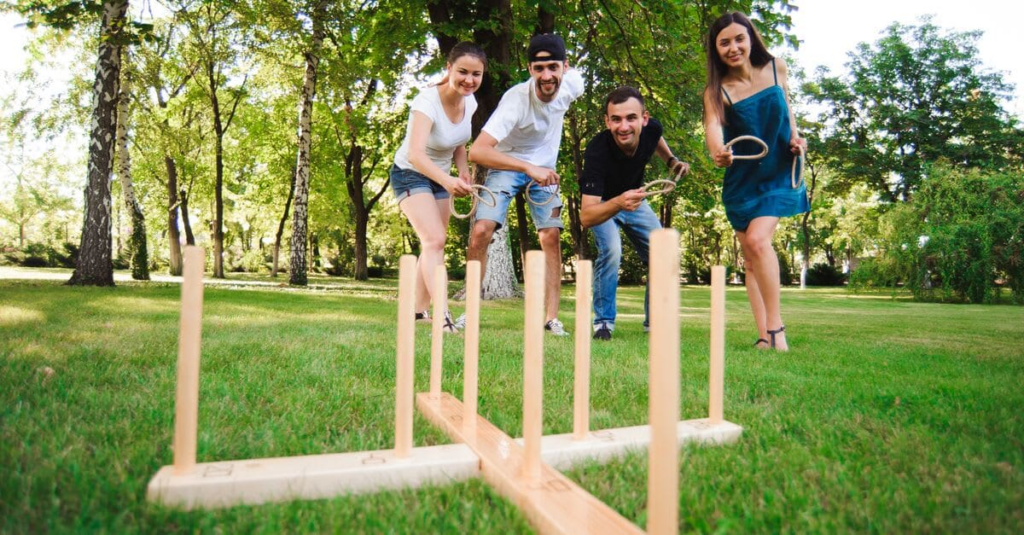In today’s fast-paced world, filled with deadlines and responsibilities, the idea of “play” might seem like a frivolous luxury reserved solely for children. However, mounting scientific evidence suggests that playfulness, at any age, holds the key to unlocking a treasure trove of benefits for our mental well-being and creativity.
This article delves into the fascinating science behind play, exploring how engaging in playful activities can positively impact our lives.
The Power of Play: Beyond Fun and Games
Play is often associated with pure enjoyment and entertainment, and rightfully so. However, its significance extends far beyond just having fun. Studies have shown that play acts as a catalyst for various cognitive, emotional, and social developments, even in adults.
Here’s a glimpse into the remarkable benefits of play:
Enhanced Mental Well-being:
Playful activities trigger the release of endorphins, the body’s natural feel-good chemicals. It, in turn, reduces stress hormones like cortisol, leading to improved mood, reduced anxiety, and a greater sense of well-being.
1. The Endorphin Effect:
Playful activities stimulate the release of endorphins, which bind to opioid receptors in the brain. These receptors are responsible for feelings of pleasure and reward. This surge of endorphins creates a sense of euphoria and reduces the perception of pain, both physical and emotional [https://my.clevelandclinic.org/health/body/23040-endorphins].
2. Combating Cortisol:
Play also helps combat the negative effects of stress. When we experience stress, our bodies release cortisol, a hormone that can have detrimental impacts on our health, including increased anxiety, sleep disturbances, and difficulty concentrating [invalid URL removed]. Engaging in playful activities helps to lower cortisol levels, promoting relaxation and a sense of calm.
3. Improved Mood and Reduced Anxiety:
The combined effects of endorphin release and reduced cortisol translate to an improved overall mood. The feel-good chemicals released during play create a sense of happiness and optimism, while the decrease in stress hormones like cortisol alleviates feelings of anxiety and worry.
4. Greater Sense of Well-being:
Playfulness goes beyond simply elevating mood in the moment. Studies suggest that engaging in regular playful activities can lead to a more sustained sense of well-being. It is because the positive emotions and stress reduction associated with play contribute to an overall sense of contentment and life satisfaction.
Boosted Creativity and Problem-Solving:
Play encourages exploration, experimentation, and stepping outside of our comfort zones. It creates creative thinking and problem-solving skills, allowing us to approach challenges with a fresh perspective and find innovative solutions https://www.sciencedirect.com/science/article/pii/S2590291121000383.
1. Embracing the Unknown:
Playful activities inherently involve exploration and experimentation. We try new things, venture into unfamiliar territory, and embrace possibilities without fear of failure. It builds a flexible mind, allowing us to break free from rigid thinking patterns and consider diverse approaches to situations. Imagine a child building a block tower – they’re not limited by pre-defined instructions, they experiment with different shapes and sizes, leading to unexpected and often innovative structures.
2. Divergent Thinking:
Play encourages divergent thinking, the ability to generate multiple and varied solutions to a problem. When we engage in playful activities, we brainstorm freely, entertain unconventional ideas, and explore different possibilities. It is a crucial step in the creative process, where we generate a wide range of options before honing in on the most effective solution.
3. Breaking Through Mental Blocks:
Play can act as a powerful tool for overcoming mental blocks. When we approach a problem with a rigid mindset, we often get stuck in unproductive thought patterns. Playful activities, however, encourage us to step outside the box and approach the situation from a different angle. It can lead to unexpected breakthroughs and innovative solutions.
4. Collaboration and Learning:
Play often involves collaboration, whether it’s working together to build a sandcastle or brainstorming ideas for a game. This collaborative process establishes communication, teamwork, and shared learning. By bouncing ideas off each other and learning from different perspectives, we can arrive at solutions that might not have been possible alone.
5. Embracing Failure as a Learning Opportunity:
Play allows us to experiment without fear of failure. We can try new things, make mistakes, and learn from those experiences. It builds a growth mindset, where we view challenges as opportunities to learn and grow. This willingness to experiment and learn from mistakes is crucial for developing innovative problem-solving skills.
Improved Social Connections:

Play provides a platform for social interaction and bonding. Whether it’s playing games with friends or family or participating in group activities, play builds communication, collaboration, and empathy, strengthening our social connections https://www.unicef.org/parenting/child-development/how-play-strengthens-your-childs-mental-health.
1. Shared Experiences and Laughter:
Playful activities create shared experiences, creating a sense of connection and belonging. Whether it’s the shared joy of winning a game, the thrill of overcoming a challenge together, or the simple act of laughing at a silly joke, play creates a foundation for positive social interaction. Shared experiences and laughter release endorphins, the body’s natural feel-good chemicals, further strengthening the social bond.
2. Communication and Collaboration:
Play often involves communication and collaboration. We need to communicate our ideas, negotiate rules, and work together towards a common goal. This collaborative process strengthens our communication skills, allowing us to express ourselves clearly, listen actively, and resolve conflicts constructively. Additionally, working together to achieve a shared objective builds trust and teamwork, which are essential for building strong social connections.
3. Developing Empathy:
Playful activities, especially those that involve role-playing or storytelling, provide opportunities to develop empathy. By stepping into the shoes of another character or perspective, we gain a deeper understanding of their thoughts and feelings. It enhances compassion and emotional intelligence which are crucial for building and maintaining healthy social relationships.
4. Building Trust and Reducing Social Anxiety:
Play can be a safe space to explore social interactions and build trust. In a playful environment, we feel less guarded and more willing to take risks and be vulnerable. It can be particularly beneficial for individuals who experience social anxiety, as it allows them to practice social skills in a low-pressure setting.
Lifelong Learning:
Play ignites a sense of curiosity and a love for learning. Engaging in playful activities keeps our minds active and receptive to new information, establishing lifelong learning and intellectual growth.
1. Sparking Curiosity:
Playful activities are inherently intrinsically motivated, meaning they are driven by the enjoyment and satisfaction of the activity itself, rather than external rewards. This intrinsic motivation fuels curiosity, the natural human desire to explore, understand, and learn new things. Play allows us to ask questions, experiment with different possibilities, and engage with the world around us in a way that is both enjoyable and stimulating.
2. Active Learning:
Play encourages active learning, where individuals are actively involved in the learning process rather than passively receiving information. Through play, we learn by doing, exploring, and making mistakes. This active engagement with the learning process builds a deeper understanding and retention of information compared to passive methods like rote memorization.
3. Making Learning Fun:
Play makes learning fun and engaging. When we associate learning with positive emotions and enjoyment, we are more likely to be intrinsically motivated to seek out new information and continue learning throughout our lives. Playful activities can transform dry subjects into exciting adventures, making the learning process less daunting and more enjoyable.
4. Building Confidence and a Growth Mindset:
Play provides a safe space to experiment, make mistakes, and learn from them. It builds a growth mindset, where individuals believe their abilities can be developed through effort and perseverance. This growth mindset is crucial for lifelong learning, as it encourages individuals to embrace challenges, view mistakes as learning opportunities, and persist in the face of difficulty.
Beyond the Playground: Bringing Play into Your Life
While playgrounds and toy stores might evoke childhood memories, incorporating playfulness into your daily life as an adult is not only possible but also highly beneficial. Here are some practical ways to embrace your playful side:
Engage in hobbies: Whether it’s painting, writing, playing music, or any activity you find enjoyable, dedicate time to pursue your hobbies.
Embrace games and puzzles: Board games, card games, or even online puzzles can be fun and stimulating to challenge your mind and connect with others.
Get physical: Engaging in physical activities like dancing, playing sports, or simply going for a walk can be a playful way to stay active and improve your mood.
Explore your surroundings: Take a different route to work, visit a new local park, or try a new restaurant. Stepping outside your routine can spark creativity and a sense of wonder.
Embrace curiosity: Ask questions, experiment with new ideas, and don’t be afraid to make mistakes. Embrace the joy of learning and discovery.
Conclusion: Unlocking the Potential of Play
Play is not a childish indulgence; it’s a potent tool for enriching our lives. By incorporating playfulness into our daily routines, we can unlock a treasure trove of benefits, building mental well-being, boosting creativity, and strengthening our connections with others. So go ahead, rediscover the joy of play, and unleash the positive impact it can have on your life. Remember, it’s never too late to embrace your playful side!


